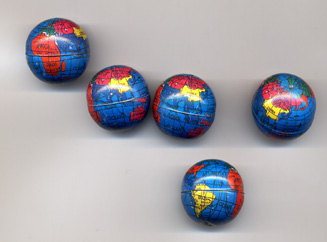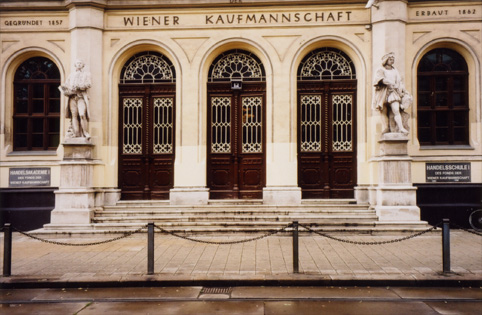 Since companies
are no longer geographically fixed in the old sense of being nationally tied to a location or region because of the availability of special skills relating
to a branch or trade (e.g. textiles or metals) their sites of production can (and do) change over very short time spans. And the social or civic component
of company activity is rapidly approaching zero except where it can be written off under the heading of PR. It is simply a matter of capital being able
to choose which labour market it will buy into. At the present point in time the neo-liberal paradigm regards commercial agreement as the foundation
stone for a moral universe which sets property-in the form of capital, investments, copyrights, patents etc.-above people. Thus these rights will be
pursued on all levels from acquisition and legal enforcement through to political intervention to ensure their observance. Since companies
are no longer geographically fixed in the old sense of being nationally tied to a location or region because of the availability of special skills relating
to a branch or trade (e.g. textiles or metals) their sites of production can (and do) change over very short time spans. And the social or civic component
of company activity is rapidly approaching zero except where it can be written off under the heading of PR. It is simply a matter of capital being able
to choose which labour market it will buy into. At the present point in time the neo-liberal paradigm regards commercial agreement as the foundation
stone for a moral universe which sets property-in the form of capital, investments, copyrights, patents etc.-above people. Thus these rights will be
pursued on all levels from acquisition and legal enforcement through to political intervention to ensure their observance.
On the other hand wage levels insufficient to pay for basic
needs are said to be undergoing regulation by market mechanisms. People are not the business of business unless they happen to be a temporarily
scarce resource. Those in business who think otherwise are under continuous competitive pressure. It is the same market mechanism that placed (and
places) slave labour in competition with free labour; Third World workers in competition with European ones; Rumanian with German and so on. |
 |

|
In fact, little has changed since the colonial era in the sense that the whole thrust of international
politics is still based on national interests and securing raw materials. The result is that a natural gas pipeline is being built in Burma using slave
labour in partnership with companies from the USA, France and Thailand. In Sudan companies pump oil out of, and money into, civil war and genocide. In
Indonesia, the slaughter of thousands of civilians was condoned and encouraged by the US and Australia, with, according to John Pilger satisfactory results: “The
Freeport Company got a mountain of copper in West Papua (Henry Kissinger is currently on the board). An American and European consortium got West Papua’s
nickel. The giant Alcoa company got the biggest slice of Indonesia’s bauxite. |